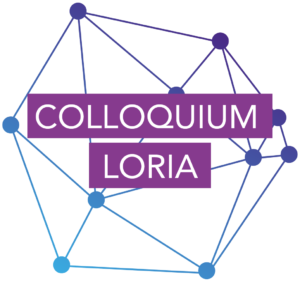Explore the ethical issues of computer science research through dystopia.

The workshop “Ethics in computer science: write your own dystopia” is intended for PhD students, students and researchers in computer science, natural language processing and philosophy. It aims to create a space for reflection and exchange to explore together the issues of research ethics through science fiction. It will take place on November 3 and 4, 2022 at the Château du Montet, in Vandoeuvre-lès-Nancy.
The rise of new technologies and the acceleration of innovations raise many societal questions. It is necessary for researchers to reflect on the ethical stakes of research and its applications and to develop a critical mind.
This workshop aims to explore the ethical issues of the participants’ research fields by reflecting on how research is conducted (deontological ethics) and how its results could be diverted (consequentialism), encouraging a sense of social, environmental and scientific responsibility. The two days are articulated between theory and practice, reflection and creativity.
-
On the first day, participants will be accompanied by researchers from Loria, the Vrije Universiteit Amsterdam and the National University of Ireland in Galway, specialized in natural language processing, data science, semantics, artificial intelligence and ethics. An overview of the philosophical bases and a case study will be followed by practical group activities for a richly interactive reflection and cross-disciplinary exchange.
-
The second part of the workshop leaves room for imagination with the writing of a dystopian short story. Diane Ranville, scriptwriter and producer at NEB studio, will guide the groups in their creative process and the development of science fiction scenarios based on research topics. The groups’ work will be presented at the end of the two days.
Practical information:
- Dates: November 3 and 4, 2022
- Place: Château du Montet, Vandoeuvre-les-Nancy
- Registration until October 14th on this form.
- Free workshop
- Workshop in English
- Doctoral credits: 1.5 credits – IAEM and SLTC doctoral schools.
Financial support: Loria, IMPACT project OLKi, doctoral school IAEM
Full program:
Day 1
9h – 12h : Introduction covering the philosophical bases (Karën Fort), a case study on smart office setting (Sarah Carter) and the role of dystopia and science fiction to help thinking about ethical issues (Ilaria Tiddi).
Practical activities : creating the teams, brainstorming on research topics and their potential ethical issues
12h – 13h30: Lunch
13h30 – 17h:
17h30 – 18h: Pitching
Day 2 Writing a dystopia
A professional writer will guide your team to create your own dystopian short story. Starting from your theme, you will identify your story’s moral debate, imagine your characters and explore dramatic situations. Then you will learn to structure your storyline in order to build momentum and meaning, before actually writing the final text and ultimately sharing it with the rest of the group.
9h – 12h:
- Introduction to creative writing & dystopia
- Characters’ moral debate
- Dystopian spiral
12h – 13h30: Lunch
13h30 – 17h:
- Unfolding the narrative
- Writing the story
17h – 18h30:
Sharing the stories (12mn/group including 5mn questions)
Speakers:
Karën Fort, Mathieu d’Aquin, Maxime Amblard, Sarah Carter, Ilaria Tiddi, Diane Ranville, Marc Anderson
- Karën Fort is Associate Professor at Sorbonne Université and does her research at the LORIA laboratory in Nancy. Her primary research interest is manual annotation for natural language processing (NLP), which she extended to crowdsourcing annotation, in particular using Games With A Purpose (GWAPs). She also developped an interest in ethics in NLP and co-organized the first colloquium on the subject in 2014, in France, followed by a national workshop (ETeRNAL 2015 and 2020) and a special issue of the TAL journal in 2016. She initiated the ethics and NLP French blog (http://www.ethique-et-tal.org/) as well as the survey on ethics in NLP (Fort & Couillault, 2016). She was co-chair of the first two ethics committees in the field (EMNLP 2020 and NAACL 2021) and is co-chair of the newly created ethics committee of the association for computational linguistics (ACL). She is also a member of the Sorbonne IRB. She teaches ethics in data science and NLP at Assas University in Paris, at IDMC in Nancy (NLP Master), and at the University of Malta.
- Mathieu d’Aquin is a professor, researcher and a developer. His work addresses current challenges in bridging the gap between raw, heterogeneous, multi-source data, and exploitable knowledge. His research on the semantic web, linked data, knowledge engineering, ontologies, artificial intelligence, privacy and data ethics has been applied in many different domains.
- Maxime Amblard is a Lecturer in Computer science – Natural Language Processing at Université de Lorraine. He is head of the master in NLP, Natural Language Processing, Programming and Algorithms. He conducts his research at Inria and Loria within the Semagramme Team, where he develops frameworks for Dialogue, Discourse and Semantics of natural language, including ethics in NLP and AI.
- Sarah Carter is a scientist-ethicist interested in ensuring scientific progress always serves our communities and us. For the last 3 years, she has been a PhD candidate at the National University of Ireland—Galway. Her interdisciplinary PhD topic, between philosophy and data science, is researching ways to make more meaningful privacy choices on our smartphones. During her master’s degree at Utrecht University, she researched organoid drug screening for cystic fibrosis and the ethics of organoid biobanking. As an undergraduate at Mount Holyoke College, she conducted research in synthetic organic chemistry and organoid metabolomics. Sarah is also a musician and plays both double and electric bass. (website)
- Ilaria Tiddi is an Assistant Professor in Hybrid Intelligence at the Vrije Universiteit Amsterdam (Knowledge In AI group). Her research focuses on creating systems that generate complex narratives through a combination of machine learning, semantic technologies, open data and cognitive theories, mostly applied in e-Science and robotics scenarios. (website)
- Diane Ranville is a scriptwriter for comic books, webseries and digital media. She works at The NEB studio where she creates fantasy and scifi stories about topics such as the accountability of people with power, fighting oppression or sharing knowledge.
- Marc Anderson is a post-doctoral researcher at LORIA, Université de Lorraine. He researches ethics of artificial intelligence and technology. He is interested in axiological approaches to ethics primarily – i.e. ethics proceeding from the notion of value – in AI and technology for work and industry, and in moving AI ethics beyond hype toward ground level results.


